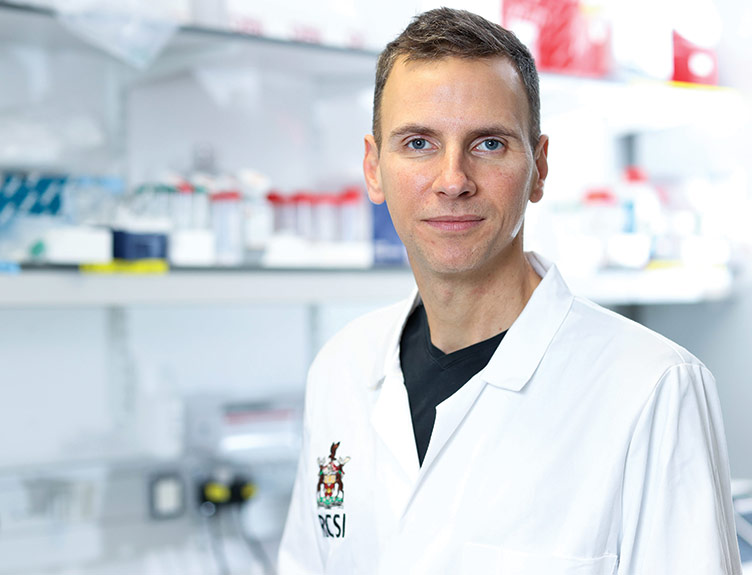New potential treatment to target resistant breast cancer discovered by RCSI researchers

Researchers at RCSI have discovered a new potential treatment to target an under-studied form of breast cancer. Their study found that patients who did not respond well to treatment had high levels of a protein called BRD3 in their tumours. The research team then showed that combining two existing drugs may be a potential therapeutic strategy to treat this form of breast cancer. The research is among the innovations being presented at RCSI Research Day 2018, which takes place in the College today.
The findings will be presented at RCSI Research Day 2018 today by Louise Walsh, an Irish Cancer Society-funded PhD student at the Department of Molecular and Cellular Therapeutics, RCSI who carried out the research under the supervision of Principal Investigators Dr Tríona Ní Chonghaile and Dr Darran O'Connor.
In a type of breast cancer called invasive lobular carcinoma, 1 in 3 patients do not respond well to traditional anti-hormonal treatment options. These patients are described as having 'resistant' cancer. Invasive lobular breast cancer is under-studied compared to other types of breast cancer, however, if it was taken as a cancer type on its own it would be the sixth most common cancer in women.
Dr Tríona Ní Chonghaile commented: "Currently, there are limited treatment options for breast cancer patients who do not respond well to traditional treatment. This study has identified a promising new potential treatment for patients with resistant invasive lobular breast cancer. We found that using two drugs in combination resulted in a greater increase in cancer cell death. These results are an important finding to inform future research to further understand this type of breast cancer and to improve treatment options."
In order to find new drug targets to treat this type of breast cancer, the team at RCSI together with Professor William Gallagher, UCD and Director of the Irish Cancer Society's Collaborative Cancer Research Centre BREAST-PREDICT, analysed patient samples and found that patients with low levels of a protein called BRD3 tended to have a good response to treatment, whereas patients with high levels of the protein had a poor response to treatment. A drug that blocks the protein from working, called JQ1, was found to increase cancer cell death and stopped the cells from growing but was unable to kill all of the cancer cells. The researchers analysed the cells that were still living after drug treatment and found high amounts of an anti-death protein called BCL-XL, which stops cancer cells from dying. The researchers found if they blocked both proteins using two drugs in combination (JQ1 and ABT-263), they could effectively kill even more cancer cells.
The research is funded by Breast Cancer Now, the European Commission under the FP7 Health programme RATHER and the Irish Cancer Society Collaborative Cancer Research Centre BREAST-PREDICT.
For further information on RCSI Research Day 2018 visit: rd.rcsi.ie
RCSI is ranked among the top 250 (top 2%) of universities worldwide in the Times Higher Education World University Rankings (2018) and its research is ranked first in Ireland for citations. It is an international not-for-profit health sciences institution, with its headquarters in Dublin, focused on education and research to drive improvements in human health worldwide. RCSI is a signatory of the Athena SWAN Charter.



